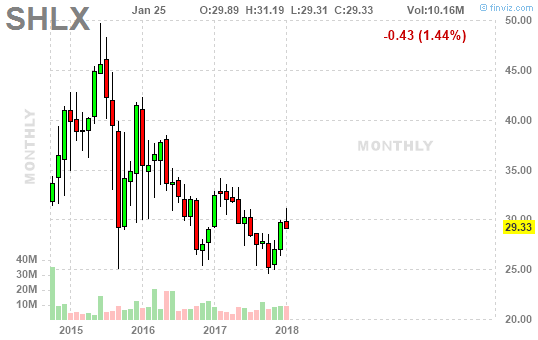- Jan 25: #97
** charts before earnings **
** charts after earnings **
- Reports Q4 (Dec) earnings of $1.48 per share, excluding non-recurring items, $0.05 better than the Capital IQ Consensus of $1.43; revenues rose 13.9% year/year to $7.74 bln vs the $7.53 bln Capital IQ Consensus.
- Global HUMIRA sales increased 14.0 percent on a reported basis, or 12.3 percent operationally, excluding a 1.7 percent favorable impact from foreign exchange. In the U.S., HUMIRA sales grew 15.1 percent in the quarter. Internationally, HUMIRA sales grew 6.5 percent, excluding a 5.2 percent favorable impact from foreign exchange.
- Co issues raised guidance for FY18, sees EPS of $7.33-7.43 from $6.37-6.57, excluding non-recurring items, vs. $6.66 Capital IQ Consensus Estimate.
- Co reflects the impact of U.S. tax reform and stronger operating performance. The midpoint of this guidance reflects year-over-year growth of 32 percent, more than half of which is driven by growth in the underlying business. Relative to the previously issued 2018 guidance provided in October 2017, this guidance includes an increase of $0.08 as a result of stronger operating dynamics. AbbVie's adjusted EPS guidance range reflects an effective tax rate of approximately 9 percent in 2018.
- In 2018, AbbVie will experience a one-time net tax benefit related to the timing of the phase in of provisions of the new legislation on certain subsidiaries. This benefit has been excluded from the adjusted EPS guidance, and included in the GAAP guidance range.
- Over the next five years, AbbVie plans to invest approximately $2.5 billion in capital projects in the U.S. and the company is currently evaluating additional expansion of its U.S. facilities. Also, in 2018, the company plans to make a one-time charitable contribution of approximately $350 million to select not-for-profit organizations based in the United States.























